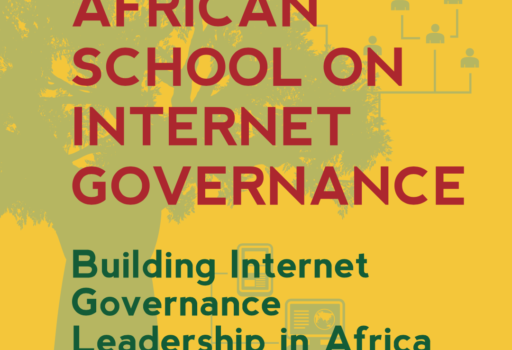When you think of internet governance, you think emerging technologies, Fourth Industrial Revolution (4IR), young, evolving, borderless. You imagine a room, filled with a plethora of ideas, industry leaders, government representatives, youth, civil society and academics. You, in essence, envisage the 8th African Internet Governance Forum (AfIGF). This year themed “Shared Responsibilities of Stakeholders for a Robust Ecosystem of Internet Governance”, the AfIGF commenced with the inauguration of the African Youth Internet Governance Forum (AYIGF), which is basically a personification of the… Read more
Afrisig news

Participar en la Escuela de Gobernanza de Internet de Africa (AfriSIG, por su sigla en inglés) significó para mí varios descubrimientos: que existiera una institución que durante siete años estuviera enseñando de manera organizada este tema complejo, fue la primera lección.
Lo que conocía de gobernanza de internet se debía a la asistencia a varios foros globales, regionales y nacionales sobre el tema. Contar con la posibilidad de aprender los muchos temas de una manera ordenada y coherente le da mucho más sentido a aprovechar aún más estos foros en los que las… Read more

The seventh edition of the African School of Internet Governance has come and gone. I am grateful to the Association for Progressive Communications (APC) and Deutsche Welle for the joint support that made my participation at this year’s edition of the School possible.
During the five-day event, various faculty members discussed the internet through different lenses, leading to a more holistic understanding of internet governance.
The one theme that stuck with me, however, was the role that African governments play in the shaping of global internet governance standards,… Read more

The seventh African School on Internet Governance (AfriSIG 2019) took place on 3-9 September 2019. With a track record of producing unique cohorts of internet governance specialists for the continent and beyond, it sets itself apart by building synergies and interpersonal professional relationships that transcend beyond borders and limitations.
As is a tradition for the School, it comes up with a post-event recommendation or solution to a nagging challenge, particularly towards solving internet governance challenges, through a rigorous practicum. This year’s practicum was based on… Read more

To say I was excited when I received the good news of my acceptance to the seventh edition of the African School on Internet Governance (AfriSIG) would be an understatement. I was really over the moon, as I had tried and had not been so lucky the previous year. Having interacted with colleagues who had attended the school in the previous years and who had gone on to do great and inspiring work within the internet governance sphere, I was determined to give it a second shot when the call came out again this year.
AfriSIG19 has been such an empowering and cutting-edge capacity… Read more

The African School on Internet Governance (AfriSIG) aims to develop the leadership skills of Africans from diverse sectors and backgrounds to enable them to effectively participate in local, regional and international internet governance structures. This is not only important for shaping the continent’s internet landscape, but also ensures that the African region is adequately represented at global level.
When it comes to internet governance, the annual UN-mandated Internet Governance Forum (IGF) is undoubtedly the most prominent global space. Initiated in 2006, it is defined as a… Read more

The World Summit on the Information Society (WSIS) defines internet governance as the development and application by governments, the private sector and civil society of shared principles, norms, rules, decision-making procedures and programmes that shape the evolution and use of the internet.1 The internet is a network of autonomous networks of computing devices, which share the same core protocols enabling them to interoperate regardless of the endpoint applications and devices.2
Governance, most simply defined, is a form of control to ensure organisations, communities or societies… Read more

Negative.
That’s the ultimate effect in one word!
Social media taxes are taxes charged for the use of social media platforms. We have seen their implementation in a few African countries, including Uganda ($0.05 per day), Tanzania ($0.05) and, for a brief time, Benin. Similar taxes have also been proposed in Zambia ($0.03). The motivations behind this policy are multiple and layered; some governments are attempting to silence their opposition and those who support them, while others are using this tax as a way to make money.
What does this do… Read more

What is the internet we want? This was a question posed by one of the panels at the 7th African Internet Governance Forum (AfIGF), held from the 4-6 November 2018 in Khartoum, Sudan. The question is increasingly important as the development of cybercrimes and cybersecurity legislation becomes a priority for many African governments. The 2014 African Union Convention on Cyberspace Security and Protection of Personal Data or “Malabo Convention” represents political commitment by African states to take measures on a range of issues, including cybercrime. While ratification of the convention… Read more

In 2014, the African Union Commission (AUC) adopted the Malabo Convention on Cyber Security and Personal Data Protection in order to provide fundamental principles and guidelines, ensure the effective protection of personal data and create a safe digital environment for citizens as well as protect individuals’ online data and privacy.
However, unlike the European Union’s (EU) General Data Protection Regulation (GDPR), the African Union (AU) Convention is not automatically… Read more

